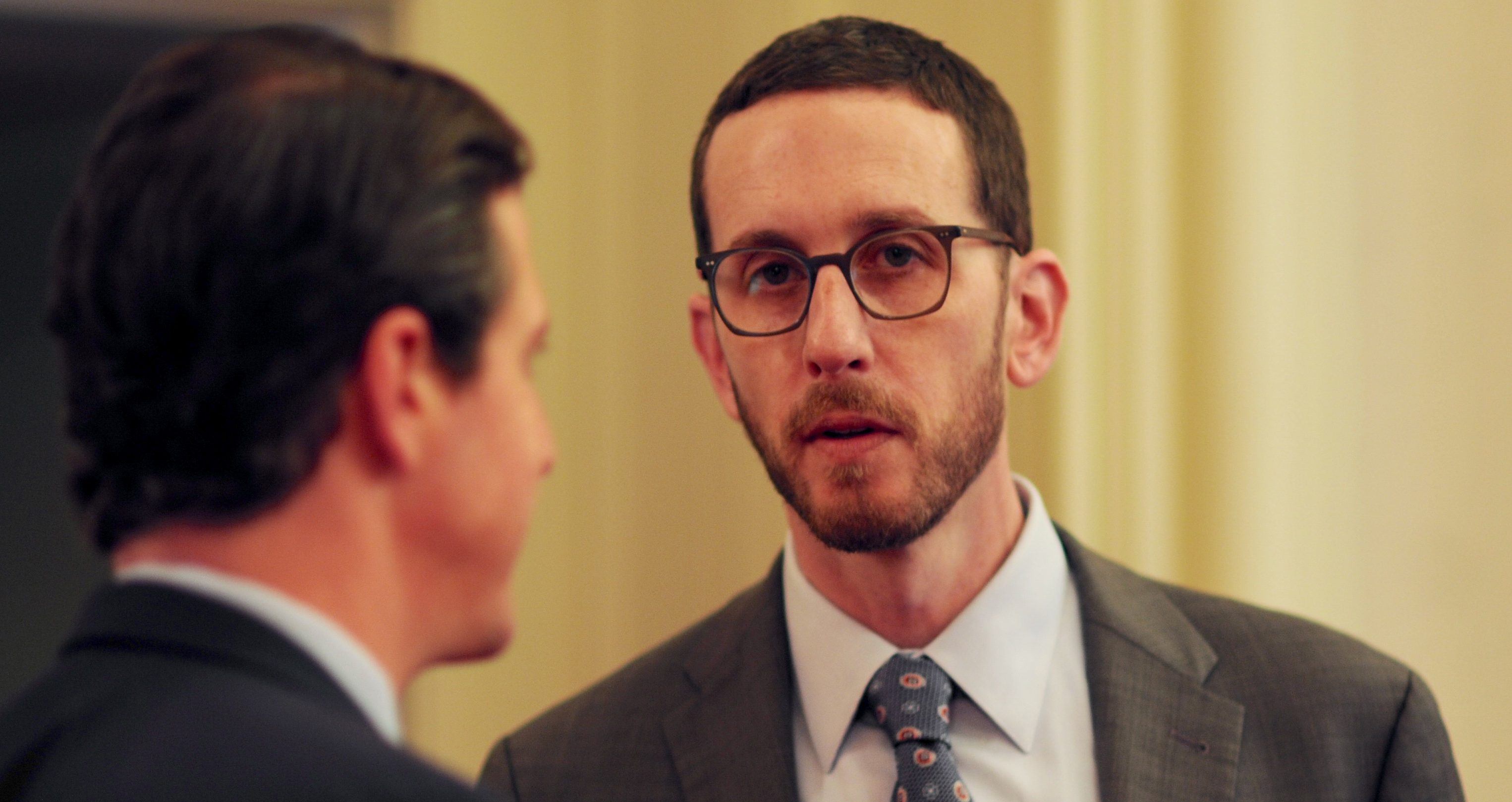
Shale-oil and -gas production. (Photo: USGS.gov)
Monterey County Fracking Ban Overturned By State Appellate Court
‘The county does not have the authority to ban all new wells and all wastewater injection under Measure Z’
By Evan Symon, October 14, 2021 4:18 pm
A panel for the Sixth Appellate District of the California Court of Appeals unanimously ruled on Wednesday that Monterey County’s Measure Z, which banned oil and gas extraction such as fracking, was breaking state law and thus will still be allowed, upholding a lower courts earlier decision.
The battle over fracking in California and specifically in Monterey County has gone through a tumultuous series of court decisions, votes, and governmental action since the mid 2010’s. After a failed statewide ban on fracking and new wells in 2014, Counties decided to act and place their own limitations. Monterey County, home of the San Ardo Field, one of the top 50 largest fields in the U.S. and the 13th largest in California, was one of the first to take action. In March 2015, the Monterey County Board of Supervisors voted against a moratorium on fracking 3-2 after outcry from local residents.
Determined, environmental groups, led by Protect Monterey County, went the proposition route, gathered signatures and placed Measure Z on the ballot in the county in November 2016. Passed with 56% of the vote, the county ban on fracking was immediately challenged by well and oil operators in the county, most notably by companies like Chevron and Aera Energy. Both sued, saying that the measure was going against both state and federal law. Chevron V. County of Monterey was brought before the Monterey County Superior Court in 2017. Judge Thomas Wills ultimately ruled against the County and Protect Monterey County, only upholding the fracking ban while allowing all other manner of wells and drilling. Protect Monterey County appealed this decision.
The case languished in the courts for four years, partially delayed due to the COVID-19 pandemic. In the meantime, Governor Newsom failed to ban fracking in 2019, with the state legislature also failing to push through a ban earlier this year in April. Frustrated at being repeatedly blocked, Newsom ultimately signed an Executive Order ending all new fracking permits in the state by 2024 and all extraction by 2045. While Newsom’s order is currently going through legal challenges of it’s own, and depends largely on the California Department of Conservation’s Geologic Energy Management (CalGEM) Division and the California Air Resources Board (CARB) to craft a mandate in time, the ban is still currently set.
With a clock now ticking on new wells and extraction itself, Chevron and Aera pushed the matter, resulting in the Appellate Court agreeing with the Superior Court Decision this week and even allowing fracking to happen once more. The Appellate Justice’s specifically called out the County for going beyond its power, conflicting with state law, as well as not having the authority to influence the extraction of resources due to preemption rules.
A unanimous decision against Monterey County
“The mere fact that some local regulation of oil and gas drilling is within a local entity’s police power does not resolve the question of whether a particular local regulation is preempted by a particular state law. If a local regulation conflicts with a state law, the local regulation exceeds the local entity’s power,” said Justice Franklin Elia in the Appellate Court’s unanimous decision. “The fact that state law leaves room for some local regulation of oil drilling, such as zoning regulations identifying where oil drilling will be permitted in a locality, does not mean that the county has the authority to ban all new wells and all wastewater injection under Measure Z.”
Environmentalists who have fought fracking for the better half of a decade were disheartened by the decision and may choose to take the case up to the California Supreme Court.
“We think it was wrongly decided, and that it cuts against a century of court cases upholding the rights of cities and counties,” said Protect Monterey County lawyer Hollin Kretzmann. “We’re keeping our options open at the moment.”
Meanwhile, oil and gas operators were thrilled with the decision, noting that they now have enough time to get new wells up and running before the Executive Order takes effect in 2024.
“It sucks that we can’t dig any new wells in a few years, but that court decision just gave us our best possible option at this point,” said Timothy Gant, a geologist who consults with oil and gas companies in Northern California. “We needed a few years to utilize this field as best as we can, and we just got the ok. We’d been screwed out of so much this year. A victory feels nice, especially if it can help alleviate, or at least keep down, higher gas prices.”
Oil and gas companies are currently keeping an eye on further action on Chevron V. Monterey County in case it is brought to the state Supreme Court.
- Bill to Require Law Enforcement Disclosure if AI Was Used To Help Write Reports - August 7, 2025
- Gov. Newsom Files FOIA Request To ‘Expose True Cost’ Of L.A. Federal Troop Deployment for Anti-ICE Riots - August 6, 2025
- California Redistricting: How Newsom’s Plan Will Demolish Hard Fought GOP Gains - August 6, 2025



